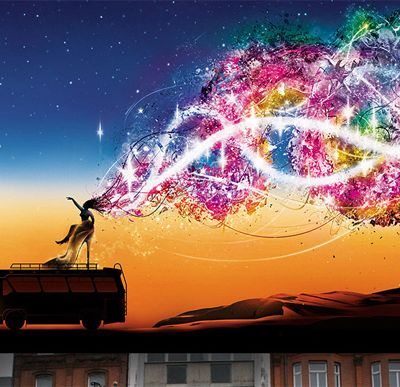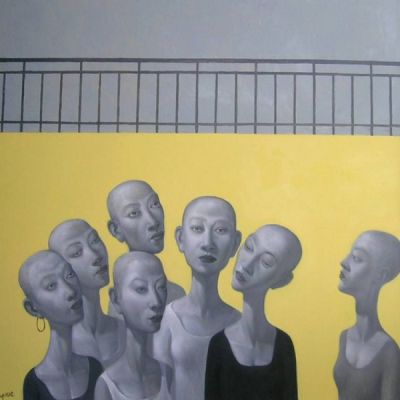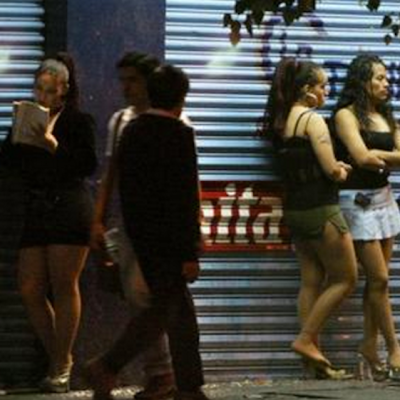Shikha Aleya
Travel and sexuality throws up different thoughts and feelings for us all. For me, it threw up the term travelling sexuality. I like it. Travelling sexuality. It sounds exotic or intellectual, adventurous, dangerous, depending on who you are and how you live life. A travelling sexuality could describe the way we evolve as sexual beings, shifting and changing identities.
Who is this person? What does this person want? Is it random cruising? Is money the goal, is it adventure? Why does it make me think of selling strawberries by the dusty roadside? I don’t have a single answer. Sex work is a lurking unknown in the world of sexuality.
Often when we speak of families and family history, we talk genetics, traditions and inheritance of all kinds. Somehow our relationship by blood or otherwise to a clan is supposed to help us identify our place in the universe. So there’s family medical history, family culture, family traditions of food and career. But sexuality? A family history that focuses on sexuality? What would that even mean?
Adeanna Cooke:
International model, featured in Playboy,
Established hacker and amateur computer programmer.
I spent time reading up the basics of gender-neutral design to understand the connect between science, society and gender. Sometimes, some people try to prove that there are ‘scientific’ reasons for inequality and injustice, for depriving one set of people of the same choices and opportunities that another set of people enjoy. This is not true. Times are changing. ‘Biased technologies’ are being altered.
There’s always another way of presenting a look, attire, accessories and bodies; of presenting the way we feel about ourselves and our sexuality, of presenting an acceptance of diversity.
The migrant has come to represent threat on many fronts, with sexuality and sexual behaviours storming the front of fronts. This is because sexuality is in itself so threatening to so many; as a word, as a concept, it is untidy, unknown, uncontainable, like that alien substance bubbling out of its pod in the film ‘Prometheus’. Or ‘Alien’.
As a society, in our platforms of exchange of goods, products and services, how are we approaching parenting, children or sexuality? Stores are clearly catering to the constructed parent and child. There’s lots of toys, clothes, diapers, bedsheets and cute dangling, fluffy things to cluck at in stores catering to parent and child as a combination thali (platter). The day I see personal and sexual hygiene products in a store catering to mom and a teenaged me, I will kick up my heels and bray.
The general attitude towards sexual fantasy, and the reflection of such fantasies in popular imagery, erotica and erotic porn is constructed on assumptions of ableism. There are other fantasies though, that reflect or are born of the sexuality of their creators and consumers, persons who do not fit into the accepted age, body or sexual identity.
People’s movements and sexuality. There is dissonance in this. Hugging trees, protesting dams, Swadeshi and boycott, anti-apartheid, anti-psychiatry, anti-war, child rights, flags, banners and marches. What does hugging a tree have to do with sexuality? Women’s rights, gay pride, these movements are people’s movements quite regularly seen in the frame and context of sexuality. But the others?
There are a number of different ways to approach this theme, Films and Sexuality. One way is through the eyes of the popcorn-eating, samosa-chomping, money-paying audience member who chooses to see or not see a film, who likes or dislikes it, who makes the film a box-office hit, or pans it.
Not everybody, everywhere, learns self-care, though most people learn how to wash their faces, brush their teeth, wear clean underwear, and lock the door to keep themselves safe.
Tolerance and space for another who is not like oneself is important. Without such tolerance and space we risk becoming perpetrators of injustice, forcing everybody into a mold that is not their shape.
The concept of boundaries has become mixed up with the concept of being bound in a this-far-and-no-further way. They have become enclosures, aquariums, cages built for those who inhabit them, but not necessarily built by them.
As soon as you add sexuality to a piece about money, the first instinct generally is to reduce it all to sex, leaving the “-uality” like a little invisible tail feather that flutters away into the unknown.















